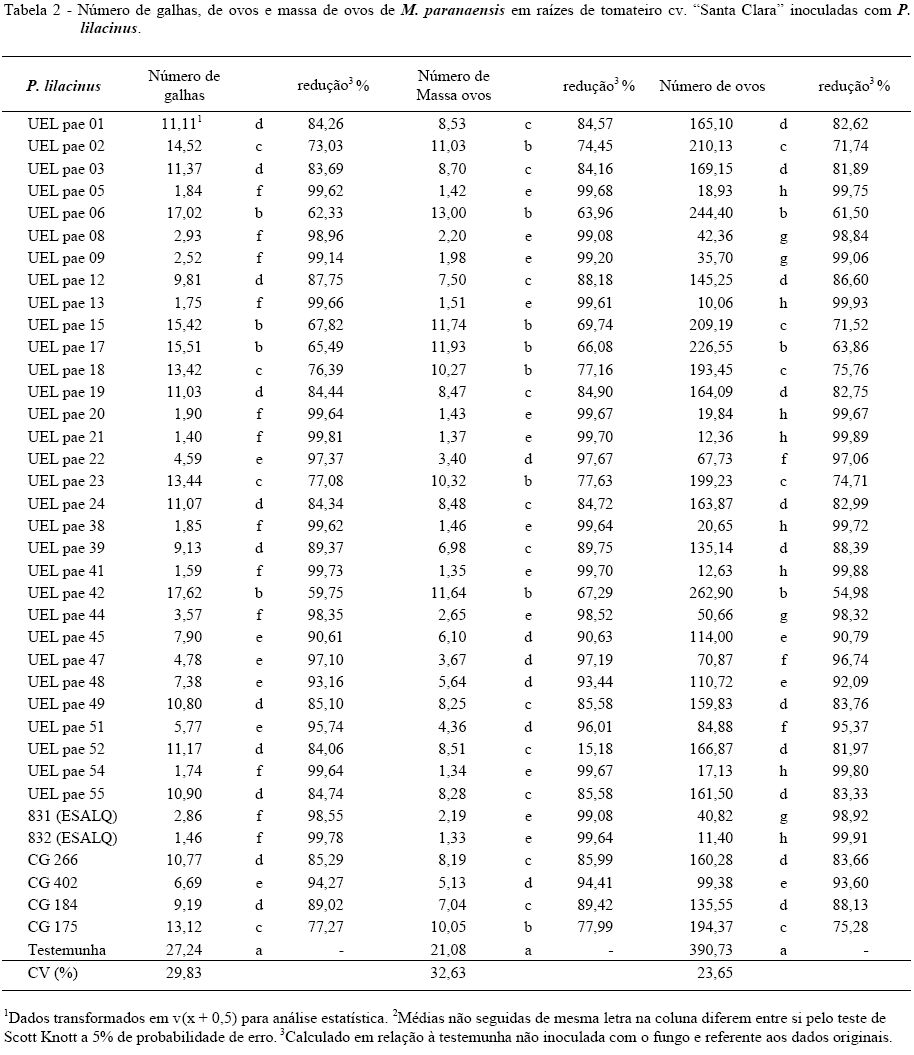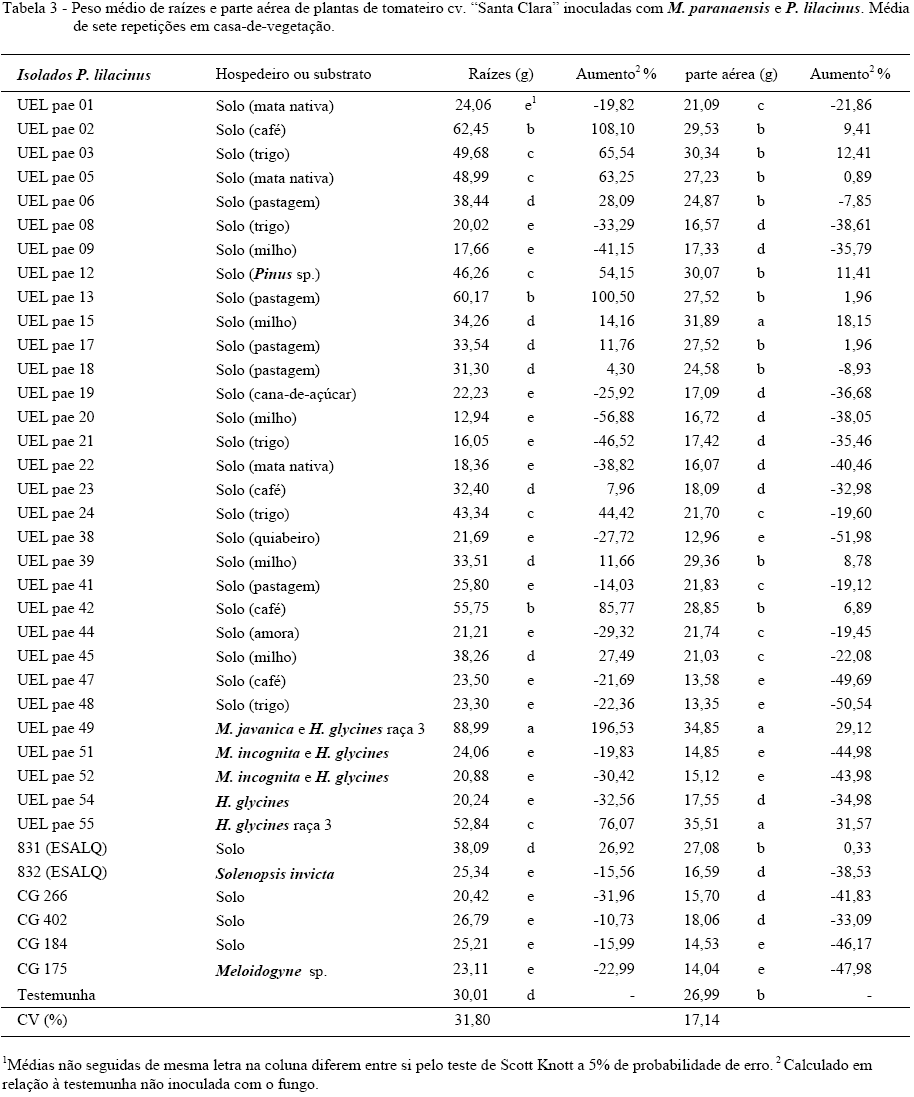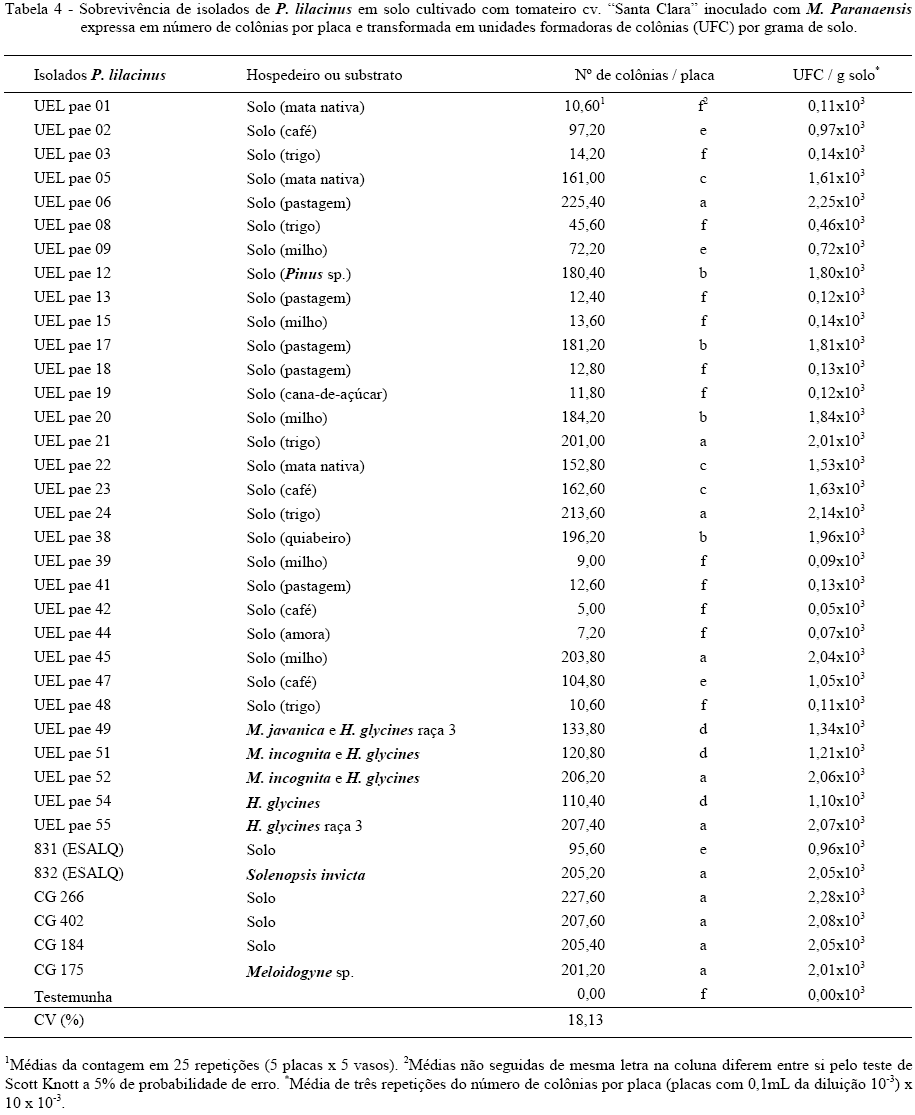Paecilomyces lilacinus is a fungal species used in biological control of nematodes. It is considered one of the most frequently evaluated fungus under field conditions. The present study aimed to select P. lilacinus isolates with regard to their capacity in controlling Meloidogyne paranaensis in tomato. Santa Clara tomato plants were grown in pots and inoculated with M. paranaensis under greenhouse conditions. The tomato plants were replaced 45 days after inoculation with 50 grams of autoclaved rice colonized with P. lilacinus. Forty-five days after fungus inoculation the number of galls, egg masses, number of eggs in root system, aerial part mass weight, root mass weight and P. lilacinus survival in the soil were evaluated. All treatments involving P. lilacinus incorporation reduced the population of M. paranaensis in tomato roots. UEL pae 05, 08, 09, 13, 20, 21, 38, 41, 44, 54, ESALQ 831 e 832 were the best in the control of M. paranaensis, affecting reproduction of the nematodes and showing a high survival rate in the soil.
gall nematode; biological control; egg parasite




